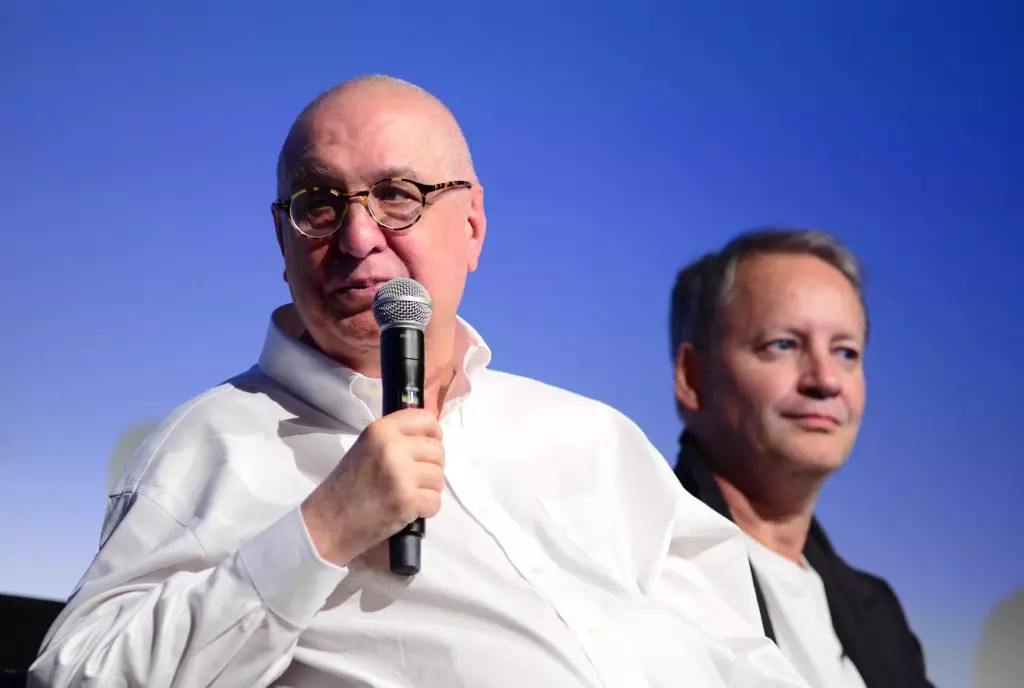Oscar-winning filmmaker Errol Morris recently premiered his latest documentary, titled “The Pigeon Tunnel,” at the Telluride Film Festival. The film centers around the life of David Cornwell, better known as John le Carré, a former spy turned novelist. While audience buzz after the screening suggested that the documentary is among Morris’s best work, there was disappointment expressed during the Q&A session when Morris revealed that he was unable to secure an interview with former Secretary of State Henry Kissinger for a separate documentary project. This article aims to critically analyze Morris’s documentary and the missed opportunity to interview Kissinger.
During the Q&A session following the premiere, Morris shared his disappointment about not being able to interview Henry Kissinger for a separate documentary project. As a renowned filmmaker known for his in-depth interviews and analysis of influential figures, Morris was undoubtedly keen to explore Kissinger’s role in shaping American foreign policy during the Nixon and Ford administrations. The filmmaker’s disappointment is shared by his fans who have witnessed Morris’s ability to delve into complex subjects and challenge powerful figures, like in his documentaries “The Fog of War” and “The Unknown Known.”
Morris references Kissinger in the context of influential figures who believe in a cyclical view of history, which absolves them of accountability for their actions. This implies that Kissinger, like other figures of influence such as Stephen K. Bannon, uses external forces as a justification for his choices and decisions. Morris highlights the contrast between these figures and David Cornwell, who served in Britain’s domestic and foreign intelligence services before becoming a bestselling author. Cornwell’s experiences as a spy during the post-war period allowed him to witness the presence of former Nazis in Germany, which led to his disillusionment with the Cold War conflict between East and West.
In “The Pigeon Tunnel,” based on Cornwell’s memoir, he expresses a deep dislike for Kim Philby, a senior British intelligence officer who turned out to be a Soviet agent. Cornwell’s disdain for Philby stems from his belief that Philby continued serving the Soviet Union despite Stalin’s atrocities and the revelation of his role as a mass murderer. Cornwell’s disillusionment with Philby’s lack of moral principles reflects his own commitment to certain ideals and moral obligations.
During the Q&A session, Morris, along with David Cornwell’s sons, discussed the making of the documentary. Despite Cornwell’s admiration for Morris’s previous work, he approached the project with caution. Cornwell interrogated the producers and closely examined Morris’s previous films to understand his motives. The dynamic between Morris and Cornwell was akin to a Cold War exchange, with both individuals attempting to gauge each other’s intentions and motivations. This suggests that Cornwell, as a former interrogator himself, was not easily swayed and proved to be a formidable subject for Morris’s documentary.
“The Pigeon Tunnel” was produced with the involvement of Cornwell’s sons, who expressed their belief that their father would have been proud of the documentary. They highlighted their father’s fascination with Errol Morris’s previous work and how it shaped his perception of truth, history, and self-reflection. Cornwell’s commitment to his ideals and loyalty to his country are evident throughout the film. While patriotism may not be the sole driving force behind his actions, Cornwell’s sense of moral obligation and loyalty to certain ideals undoubtedly played a significant role in shaping his life and work.
“The Pigeon Tunnel” offers an insightful glimpse into the life of David Cornwell, shedding light on his experiences as a spy, diplomat, and bestselling author. Errol Morris’s documentary provides a platform for Cornwell to reflect on his moral disillusionment, his encounters with former Nazis, and his disdain for individuals like Kim Philby. While the missed opportunity to interview Henry Kissinger is disappointing, Morris’s ability to captivate audiences with his storytelling and his unique approach to documentary filmmaking remains evident in this latest project. “The Pigeon Tunnel” is a thought-provoking exploration of personal and historical narratives, leaving viewers with a deep appreciation for the complexities of human nature.


Leave a Reply